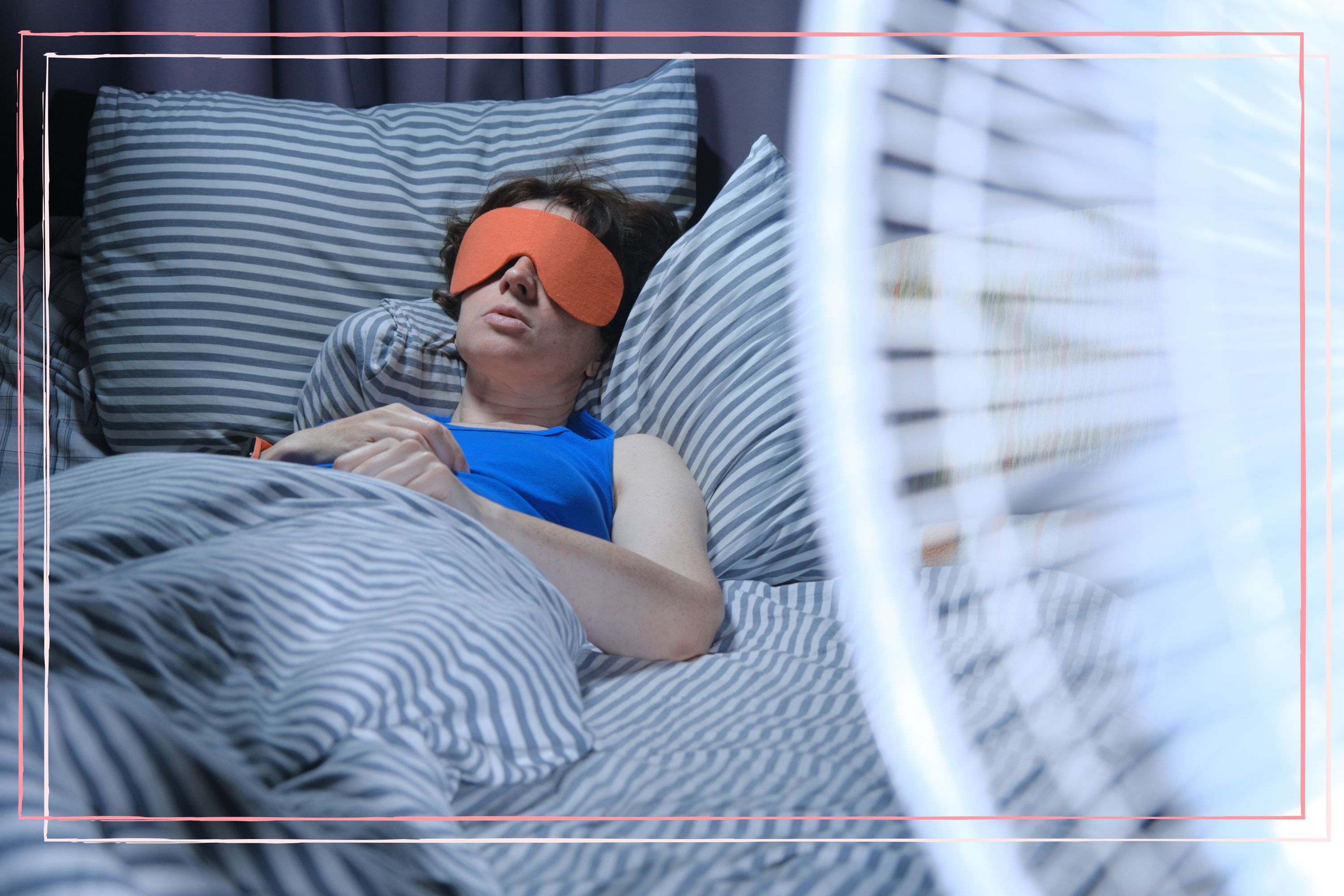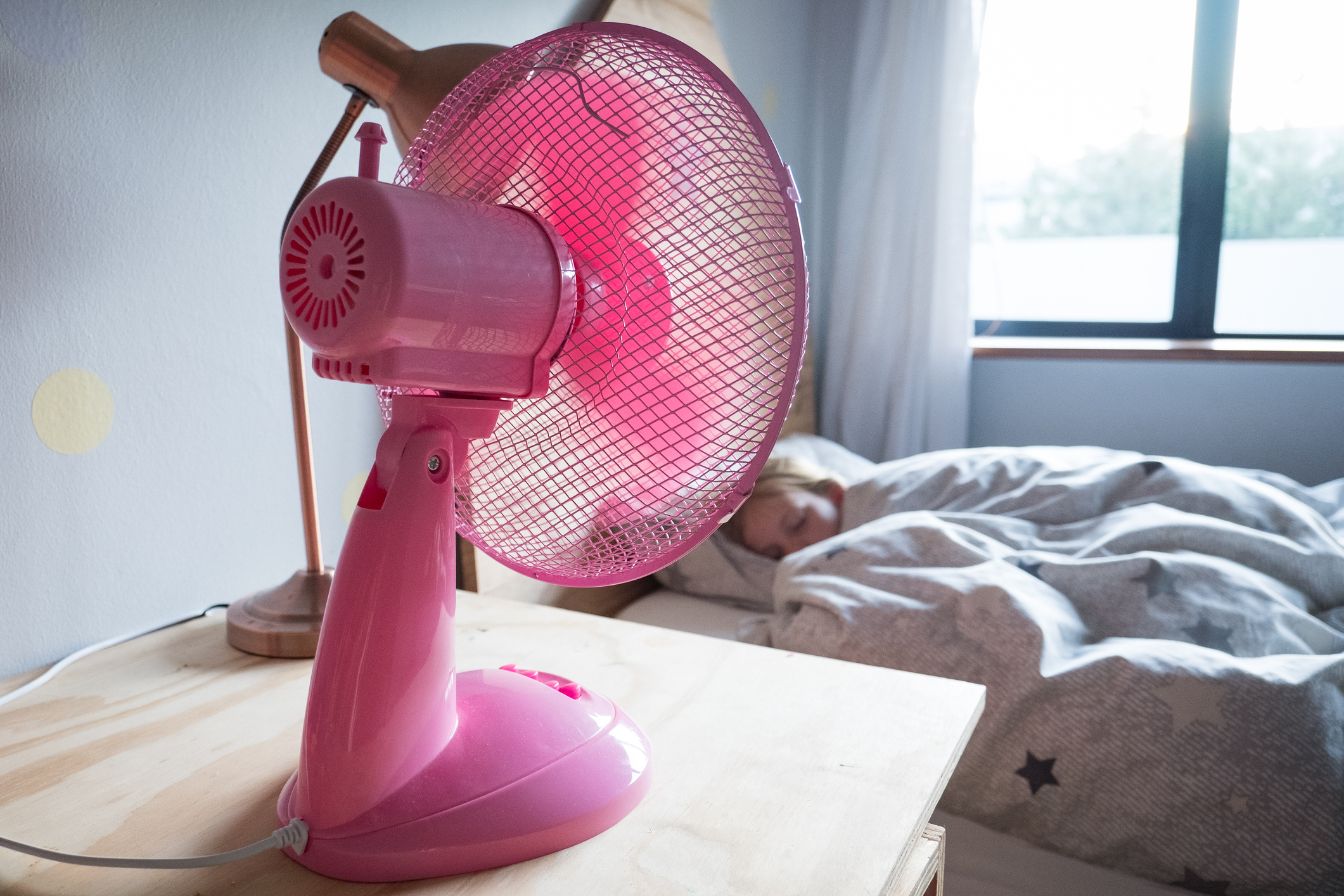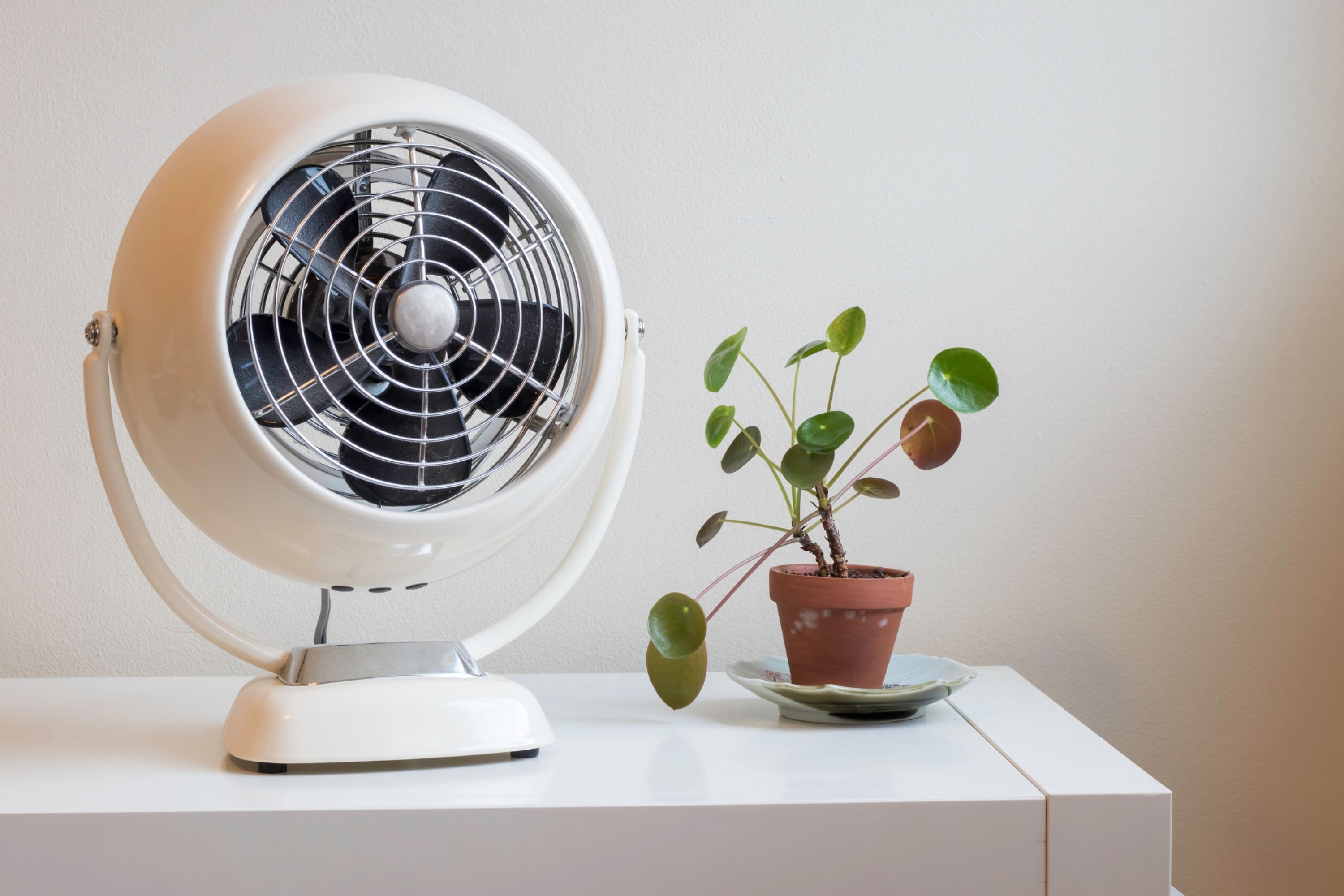Is it bad to sleep with a fan on? We asked the experts
A very good question with some interesting answers


With soaring temperatures, some people are wondering if it is bad to sleep with a fan on. We've spoken to the experts to get you answers about any safety concerns.
The days are getting hotter and you're wondering how to sleep in the heat, and whether or not to keep your fan going overnight. There are numerous ways to keep your house cool in summer, and a fan is one of the more simple ones. People often keep windows closed in hot weather to keep the heat out, and keeping them shut overnight can stop any outside noise disturbing your slumber. But if you're too hot and don't want the windows open, getting a peaceful night without a fan can he hard - with potential health risks, it's better to get the right advice.
GP Dr Johannes Uys from Broadgate General Practice Tells us "When the cool air from a fan blows directly on exposed areas of your body, it can sometimes lead to muscle stiffness or increased tension which can potentially disrupt your sleep or cause discomfort. Direct airflow from a fan can also cause dryness and irritation of the nasal passages, throat, and eyes. This can lead to discomfort when you sleep and it can also worsen respiratory conditions like asthma."
However, there are also pros to sleeping with a fan on. We've asked the experts to offer insight into the benefits of keeping that fan whirring, and ways you can keep it on at night safely.
Is it bad to sleep with a fan on?
The answer to "is it bad to sleep with a fan on", can be both yes and no. If you’ve had a fan on all day, you might notice the air feels dry due to the excess wind produced. Over time this can dry out your nose and throat, resulting in your body producing more mucus to stay hydrated.
In turn, this can create side effects including headaches, stuffy nose and sinus headaches. Leaving a fan on overnight will create the same problems, potentially exacerbating them as you won't be moving or able to get out of the constant draught.
Martin Seeley, CEO and sleep expert at MattressNextDay says there are ways to combat this negative effect. He says "If you find that this is happening, you should make sure to drink at least two litres of water throughout the day. This is also recommended for those that have suffered from a poor night’s sleep due to the heat, as even mild dehydration can cause you to feel even more drowsy and tired."
GoodtoKnow Newsletter
Parenting advice, hot topics, best buys and family finance tips delivered straight to your inbox.
Sleeping with the fan on not only causes excess mucus and congestion, but the dry air can also dry and irritate eyes; the likelihood of this happening is even higher for those who wear contact lenses.
Sleeping with a fan on can also cause a stiff neck or sore muscles. Concentrated cool air can cause muscles to tense and cramp up, making any pre-existing muscle-related issues worse. Even if you aren't suffering from muscle soreness, the excess cool air might gain you a stiff neck.

Is it bad for your lungs to sleep with a fan on?
Yes, experts agree it can be bad for your lungs if you sleep with a fan on.
Dr. Johannes Uys tells us sleeping with a fan on can worsen respiratory conditions like asthma. He said "Fans often stir up dust, pollen, and other allergens present in the room, which can be problematic for individuals with allergies or respiratory conditions. This has the potential to trigger any symptoms or allergies and worsen existing respiratory issues."
Martin Seeley says that if you are suffering from excessive sneezing, watery eyes, runny nose, itchy throat or breathing difficulties, make sure your fan blades are free of dust. He said "If you have the budget, it is worth upgrading to a better fan that can purify the air by reducing the pollen particles and dust mites throughout the room. However, if this isn’t possible, regularly deep cleaning your bedroom will help alleviate your allergies."

Dr. Johannes Uys is a General Practitioner (GP) working at Broadgate General Practice in London. Dr. Uys qualified in 2000 from the University of Stellenbosch in South Africa, before undertaking training and gaining experience in the fields of General Practice, A & E and Intensive Care Units. He moved to the UK and worked in the private healthcare sector since 2005, before working in a clinic in Central London. He then established Broadgate General Practice in London, where he currently works.
Are there any benefits to sleeping with a fan on?
There are certainly benefits to sleeping with a fan on, especially for those who have difficulty sleeping in silence. These include:
- Cooling effect - This might seem an obvious one. But if you can't sleep because you're too hot and you achieve the goal of cooling down and sleeping better, that's a major benefit.
- White noise - Dr Uys says, "Fans produce a steady, ambient noise known as white noise, which can help mask other sounds and create a soothing environment for sleep. This can be particularly good for individuals who are sensitive to noise or have difficulty falling asleep in a quiet environment."
- Reduced stuffiness - Fans can improve air circulation in the bedroom, reducing stuffiness and creating a comfortable sleeping environment. A refreshing sleep experience can result from the fresh air.
- Regulate body temperature - Abbas Kanani, pharmacist at Chemist Click Online Pharmacy tells us "Fans can create a cooling effect by circulating air and promoting evaporation of sweat, which helps regulate body temperature during hot weather or if you tend to sleep hot."

Abbas graduated as a pharmacist in 2013 and spent the first 3 years working for high street multiples, including a senior management role with the largest multinational pharmacy in the UK. In 2017, he qualified as an independent prescriber, spending time working in a primary care setting. He then assumed a consulting role within the NHS, providing advisory services on cost savings and clinical efficiencies. He has been within Chemist Click since the very start and continues to play an integral role within the team.

How can I sleep with a fan on safely?
The experts recommend correct positioning, placing your fan on a timer, and regular cleaning of your fan, to reduce risks to your health when sleeping with a fan on.
It should be pointed out that advice from the Sleep Foundation suggests that on the whole, sleeping with a fan on is safe. Individual risk factors will play a part in whether your health could be at risk; as we suggested before, fans can pose respiratory risks and an individual can judge if their symptoms do or could, become worse by using them.
To minimise risks, use a portable fan, which will allow you to move it as far away as you need it to be without increasing potential irritations. Clean the fan regularly, to reduce dust and allergens collecting and dispersing around the room. Fans with filters can be perfect for those with respiratory issues, and those with timers have the added benefit of preventing the fan moving any stray particles around all night.
You might be interested in how much its costs to run a fan, if keeping one on at night is the choice for you. How to keep cool during pregnancy is another hot topic of conversation when the temperatures rise. How to dress a baby for sleep when its warm can also be a concern for parents, but we have expert advice to arm you with everything you need to know.

Lucy is a mum-of-two, multi-award nominated writer and blogger with six years’ of experience writing about parenting, family life, and TV. Lucy has contributed content to PopSugar and moms.com. In the last three years, she has transformed her passion for streaming countless hours of television into specialising in entertainment writing. There is now nothing she loves more than watching the best shows on television and sharing why you - and your kids - should watch them.